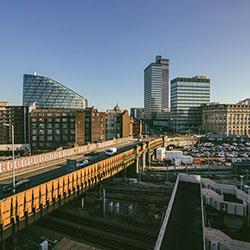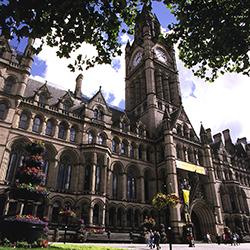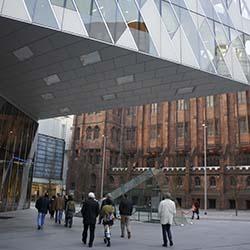
Coproducing Urban Climate Change & Environmental Governance: A Case Study of Greater Manchester, UK
In the wake of its “City Deal” and newfound city-regional powers, Greater Manchester, UK is now grappling with its climate change and environmental governance pathways through the use new mechanisms. One example of a novel governance mechanism was the 2018 Mayor of Greater Manchester's Green Summit which was one step in a continuing process to envision a new direction for the city-region’s climate change policy. Meanwhile, campaigners, activists, citizens and other stakeholders are trying to understand how their climate change and environmental interests can be justly represented within these new decision-making processes at the city-regional level. Greater Manchester is now considering how it can develop climate change and environmental policy through pathways that are collaborative with a wider set of external stakeholders.
To support the development of new collaborative governance processes, a partnership has been formed with the Greater Manchester Low Carbon Hub to establish an action research project to effectively engage decision-makers and the public during the development and implementation of climate change and environmental policy. Ryan, a PhD candidate directing this project, is focusing on exploring new coproductive policy development pathways and mechanisms that can enable collaboration and engagement between the Greater Manchester Combined Authority’s Environment Team and citizens and civil society organisations. Through the embedded action research project, this research investigates the strengths and limitations of coproduction as a governance process for developing socially just and scientifically rigorous climate change and environmental policy in Greater Manchester.







